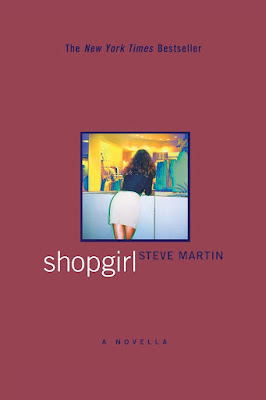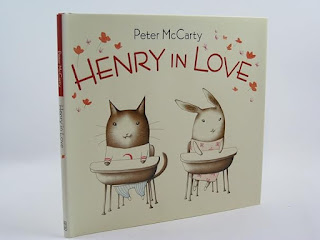A Look Back at Shopgirl on its 21st Anniversary... and the Joy of a Novella
Steve Martin's Shopgirl turns 21 on October 11th this year. Though the social stigma around depression continues to improve, there's still a long way to go, and in remembering this, it's impossible to ignore how the author portrayed the main character’s mental health in an honest and tender way.
On the surface, Shopgirl is a love story, but it is more about Mirabelle learning how to love herself than about her finding a healthy relationship.
Mirabelle is described as someone who “spins a cocoon around an idea until it is immobile” and is “aware of every incoming sensation that glances obliquely against her soft, fragile core (9).”
In the beginning of the story, she falls asleep “subtly doped on her prescription” but later suffers a depressive relapse when this medication stops working, when she feels “as though her body is held down by weights and her mind is being methodically disassembled (81).” After this incident, Martin writes explicitly about her depression and treatment plan. Her doctor believes that “she is experiencing a pharmaceutical collapse (82).” While she must wait for her new medication “to kick in (85),” she experiences suicidal ideation, “separated from suicidal thoughts by only a thin veneer (87).” The suddenness and severity of her depressive episode is relatable to anyone who has experienced it themselves, but more importantly, the description helps those who haven’t begin to understand what it’s like, opening the curtain to a real disorder that can be debilitating and dangerous.
When Ray Porter breaks her heart, another bout of depression leads Mirabelle to some important personal truths.
While Martin is unafraid to address depression in his writing, it’s even more noteworthy that he is able to point out the unforeseen benefits of depression, such as inner growth.
Mirabelle isn't the only character who addresses their mental health in the story. Both of her love interests are entangled in their own self-help journeys, while Ray Porter attends counseling, and Jeremy, whom Mirabelle ultimately ends up with, discovers meditation while away on his stint as a roadie. Both techniques (talk-therapy and self-reflection) assist these characters in becoming better versions of themselves. Ultimately, Mirabelle finds love with Jeremy that is “tender and true,” while he “pushes her forward into the world of drawing for money (127).” Ray Porter eventually understands that he did love Mirabelle, and even though it’s too late for their relationship, it’s not too late for him to change. Through the evolution of his characters, Martin is able to show what unhappiness looks like but also, how it can be overcome.
"A Novella," as Steve Martin chose to subtitle Shopgirl, is a short novel.
The book’s length offers the possibility of consuming it in one sitting, a literary quicky, if you will.
The character’s feelings and perspectives are written so explicitly, without beating around the bush, that the story can move along at an organically swift pace. The duration of the novel could also be meant to represent the briefness of a depressive episode or an unsuccessful relationship. The novel is a snapshot of its characters in one particular part of their lives, mirroring the self-portraits that Mirabelle constructs or the photo of Mirabelle that Ray Porter holds onto. A long book can be a welcome adventure, but is there no better joy than in finding a good book that can be finished in a day?
Shopgirl may be short, but it’s no less sweet because of it.
Works Cited
Martin, Steve. Shopgirl. 40 Share Productions, Inc., 2000.


